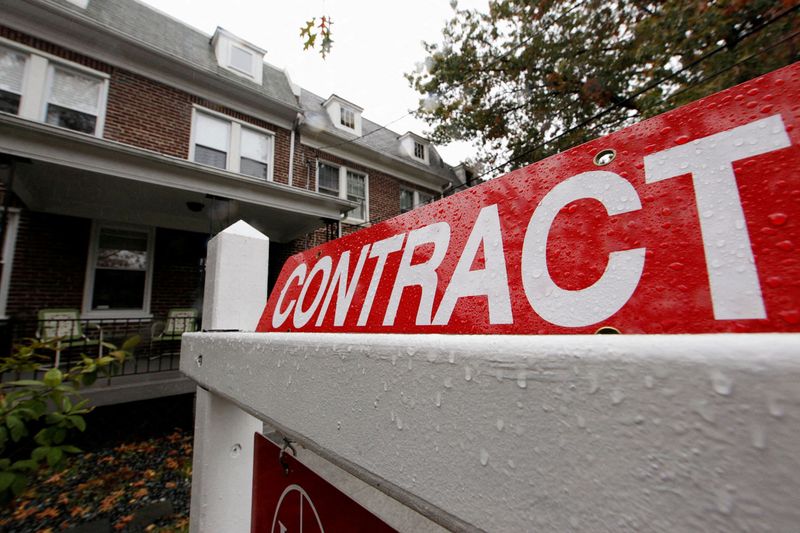(Reuters) - The interest rate on the most popular U.S. home loan surged by the most in nearly two years last week, shooting above the 4% level for the first time since 2019 as financial markets anticipate that the Federal Reserve will respond to the highest inflation in a generation with an aggressive run of rate hikes.
The Mortgage Bankers Association on Wednesday said its weekly measure of the average contract rate on a 30-year, fixed-rate mortgage climbed to 4.05% in the week ended Feb. 11 from 3.83% a week earlier. That was the highest since October 2019 and the largest weekly increase since March 2020 when the onset of the coronavirus pandemic was roiling financial markets.
The Fed responded to the pandemic-induced recession by cutting its benchmark rate to near zero and buying trillions of dollars in government bonds and mortgage-backed securities, and mortgage rates fell to historic lows below 3%.
But with the economy recovering, the job market nearing full employment and inflation running at the highest rate since the early 1980s, the Fed is now seen rapidly reining in that accommodation. Policymakers have signaled an initial rate hike at their upcoming meeting in mid-March, and officials are debating openly about how fast to proceed after that.
That reset has driven up the yields on the Treasury securities that influence mortgage rates, and home financing costs have followed suit: MBA's 30-year contract rate has climbed roughly a full percentage point in about five months.

The rate rise is crimping application volumes for mortgage refinancings in particular, with MBA's refinancing index dropping to a two-year low and the refinancing share of all loan applications at the lowest level since July 2019.
Overall loan application volumes fell 5.4% last week and purchase applications dropped 1.2%.